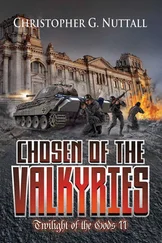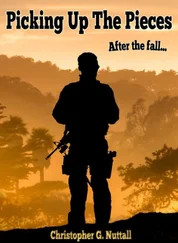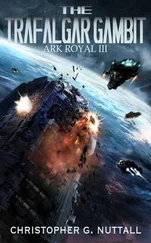“Then I must request that the BBC pays me compensation for using my material,” Stewart said, feeling a sudden burst of humour spreading through her. “I used my own equipment; you know, the equipment you demanded I buy?”
Edmund glared. “You have been getting into places based on the BBC name,” he snapped. “We have at least a partial claim to the material.”
“Hell no,” Stewart said, feeling the trap closing in around him. She held up a paper. “Interview with Rommel in twenty minutes. Interview with Prime Minister Hanover, forty minutes…”
“How the hell did you do that?” Edmund snapped. “How…?”
“I used my name,” Stewart said. “Of course… if you’re not interested in using the material…”
Edmund gave in. “Very well,” he said. She was careful to get it all on camera. “You’re no longer suspended.”
“Never was suspended,” Stewart said. “Besides, failing to tell someone they’re suspended invalidates it. Union-BBC agreements number something or other.”
“Never was suspended,” Edmund agreed. He glared at her. “This had better be good material,” he snapped. “The BBC became a laughing stock for a while, thanks to you.”
Stewart chuckled as Edmund stalked back into the reception. It had taken time, more time than she cared to think about, but she was finally back to her old self. With all of the scoops she was going to make, kicking that bitch Charlene Molesworth out of the BBC would be easy. Smiling, she headed back to the reception.
Chapter Forty-Nine: Saying Goodbye
Ten Downing Street
London, United Kingdom
10 thSeptember 1942
They laid Victor Abernathy to rest one cold day in September, with almost every Head of State in the Commonwealth in attendance. The sermon, preached by the Chaplin from RAF Leeming, was short, but moving. The great and the good – and those who were neither – had turned out for it; far more than had turned out for the last royal funeral.
Prime Minister Menzies of Australia left the funeral with the other Heads of State, heading back to Ten Downing Street, following Hanover and the other British figures on their lonely walk. It wasn’t a long walk, but it was slow; the people who hadn’t been to the future Britain were walking along, staring at everything.
One day Australia will be like this , Menzies thought. It was a comforting thought; the Commonwealth, the horse he’d bet on, would survive for a long time indeed, perhaps harden into a permanent unit. He’d been right, just as he’d been right to order the capture of the Dutch East Indies and the other islands north of Australia; they would become Australian mandates and they would become far more stable than they had been in the other timeline.
Ten Downing Street, as always, was reassuringly bright and shiny. Menzies took his seat at the round table, joining the other representatives, and smiled as Hanover took the stand. The Heads of State were equals – that had been decided from the start – and the chair would be held by whoever’s country it was. He smiled; Australia would have a meeting room for the Commonwealth soon enough, and it would play a large role upon the Commonwealth stage.
“Thank you all for coming,” Hanover said. “As you know, it has been two months, more or less, since the war came to an end. You have all seen the proposed protocols; do any of you wish to propose revisions to the protocols?”
It wasn’t exactly an idle question. The diplomats and the civil servants had worked on the protocols for months. Even with modern telecommunications – an area that Menzies was determined Australia would move ahead very fast on – it had proven a daunting task. Still, it had been a worthwhile one; the final version suited everyone.
“I do wish to launch a dignified protest against the republican form of government,” Yadavindrah Singh said. The Chancellor of the Chamber of Indian Princes – which was taking on a role similar to the House of Lords, but with some curious traditions of its own – knew that the Indian Parliament had agreed to the protocols, but he had to protest. “It provides for any government to opt out of revering the King-Emperor.”
Menzies smiled. King Charles was an unimpressive figure. How could the hub of British government describe himself as a political dissident? He’d insisted on that clause for different reasons to Hanover, who didn’t seem to care for the King-Emperor, but Yadavindrah Singh had every right to be concerned. After all, the Indian government could disenfranchise the Princes with the stroke of a pen.
“We have to work together, not separately,” Hanover said. It was a non-answer, but Yadavindrah Singh accepted it. The Chamber of Indian Princes had decided – reluctantly – to accept the Protocols. Cynics pointed out that the British Indian Army, which could now be spared for other duties, had played a role in their decision.
Menzies nodded. “For one, Australia has no problems with contributing units towards the Commonwealth Army, and the Commonwealth Navy,” he said. “In fact, the agreement of joint action in any region will definitely pull us towards a united Navy, particularly with the planned super-carriers.”
There was a round of sage nodding. The massive carriers, nuclear powered and armed with Joint Strike Fighters, would give the Commonwealth a navy second to none. Britain, Canada and Australia were seriously in favour of them; no state really dissented.
“And the assurance that the former British states in Africa below the Congo go to South Africa has swayed many towards the Commonwealth,” Smuts said. Menzies wasn’t sure how he felt about that; Smuts was making a major land grab, one that would make South Africa very powerful within the Commonwealth. “With the additional immigrants, we will be able to develop Africa into a genuine assert to the world.”
Hanover paused for a long moment, waiting to see if anyone else would raise any points. “There have been a number of points covered,” he said finally. “For five years, the Republic of Arabia, Algeria, Libya and Egypt will remain under provisional governments, but hopefully they will be able to rise to the status of full states within that time. Also, Britain will supply a Governor-General to India; General Wavell has consented to remain in that post for five years.”
Yadavindrah Singh and Jawaharlal Nehru nodded together. India needed a mediator and Wavell – the bluff, no nonsense soldier – was respected by all sides. In five years, India would either be stable enough to survive, or it would have collapsed into civil war. Wavell’s control of the army might just be enough to prevent the latter from happening.
Menzies smiled to himself. The Raj had always been a confusing state. It was fitting; somehow, that it’s final years would be more confusing than ever. Any would-be insurrectionist would have to unravel the entire power structure first, and that would be tricky indeed.
“I believe that we can sign now,” Hanover said. The original copy of the Commonwealth Protocols would be preserved for history; they would each take a copy home. Hanover signed with a flourish, and then passed the document around the table. “For history, Gentlemen, and a stable world.”
Menzies allowed himself a moment to read the Protocols before signing. They were all there, from Australia’s control over its immigration – and its mandated territories – to a permanent military alliance and a combined navy. He signed quickly, neatly, and passed it around the table.
* * *
Hanover allowed himself a moment to bite down hard on the capsule that was supposed to deliver instant relief from heavy drinking, and then straightened up with an effort. The celebrations had gone on longer than he had intended; he’d left the room to attend to other business that could no longer be denied.
Читать дальше












